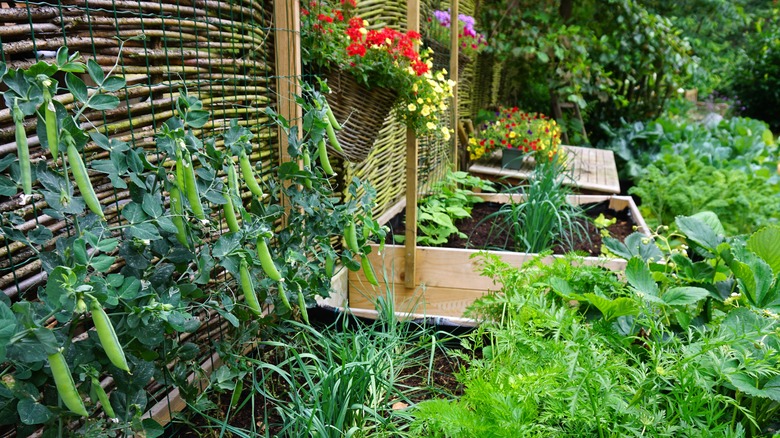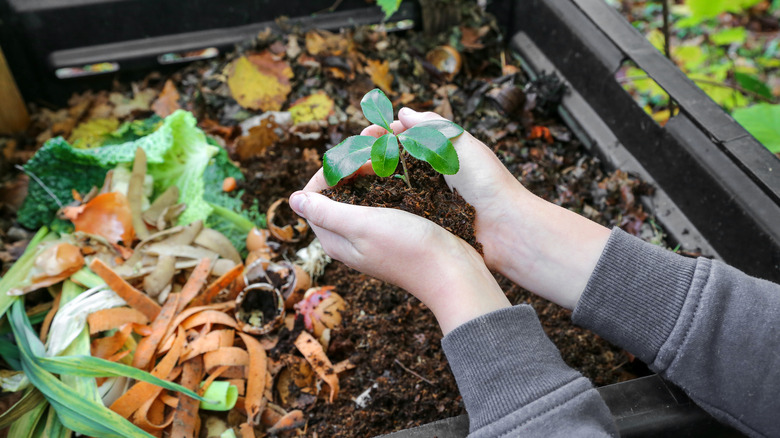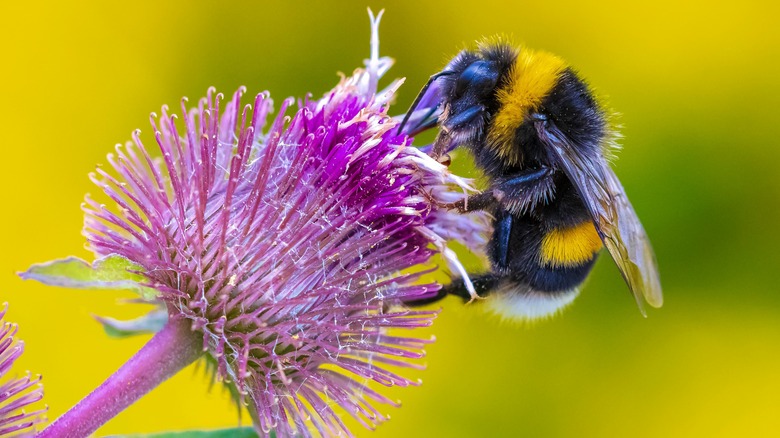3 Savvy Tips For Fighting Climate Change From Your Garden
According to NASA's Global Climate Change, our planet is warmer now than ever before, it is continuing to heat at faster and faster rates, and human activity unquestionably caused this global climate change. It's alarming, certainly, but the good thing about climate change being caused by humans is that humans can also mitigate it. Everyone, no matter their position in society, can take steps to help prevent further warming and begin to reverse what has already begun. Many of these steps are simple changes you can make within your own garden.
The first and one of the most significant ways to fight climate change is to start growing your own food, such as fruits and vegetables. As the University of Illinois Urbana-Champaign Extension explains, growing food at home instead of buying it at the grocery store significantly cuts down on the use of fossil fuels for transportation — both the gas you put in your own car to head to the store and the gas that powers those 18-wheeler produce delivery trucks you see in grocery parking lots.
Growing your own tasty meal ingredients also reduces the use of plastic packaging products, which require fossil fuels to produce and often end up in landfills, despite people's best intentions to recycle. Not to mention that runoff from pesticides and chemical fertilizers in a home garden is dramatically less than that from a commercial farm operation.
Try composting
Even if you don't grow your own fruits and veggies, as long as you eat fruits and veggies (as everyone should), you have access to another easy way to combat climate change: by composting your food scraps. The United States Environmental Protection Agency (EPA) explains that by breaking down food waste such as fruit and vegetable peels and other scraps, egg shells, coffee grounds, and even gardening by-products such as lawn clippings, you can create your own fertilizer. This act will cut down on the commercial processes to make the fertilizer you buy in stores and, once again, reduce the use of fossil fuels to transport such fertilizer.
Besides contributing to the planet's health, composting is also a fantastic way to impart to the health of your garden plants. Whether you are spreading compost on flower beds or a vegetable garden, it is one of the most nutritional fertilizers you can find — which is why it can be so expensive to purchase in landscaping stores. Best of all, it boosts the health of the microbes living inside your garden's existing soil, so the benefits of compost will last long after its initial application. And, just to say it again: free fertilizer! Who doesn't love free, especially when it helps out Mother Earth to boot?
Protect pollinators
Climate change is also affecting biodiversity and ecosystems that support pollinators such as birds, bees, and butterflies. According to The Royal Society, climate change-related trends such as shifting rainfall patterns increased year-round temperatures. Extreme weather events make it difficult for a wide variety of species to exist in areas where they previously thrived, reducing biodiversity, which is necessary to support pollinators, who require access to plants with various blooming seasons for food. Pollinators are particularly vulnerable to temperature changes that impact the length and timing of plant growth and blooming, as the National Park Service explains.
But you can help pollinators by boosting biodiversity in your own gardening space, per the U.S. Forest Service. Create your own thriving ecosystem by cultivating different plants whose flowers bloom in various seasons, covering every bloom period from early spring to late fall — and, if you are lucky enough to live in a tropical climate, even planting flowers that bloosom through the winter.
Another crucial way to support a pollinator-friendly environment is to refrain from using pesticides and other harmful chemicals in your garden. If you cultivate a healthy enough ecosystem, the wide variety of plant and insect life should cut down on the prevalence of problem bugs and pests, anyway. Plus, as mentioned above, pesticide runoff is pretty terrible for the environment and should be avoided at all costs.


